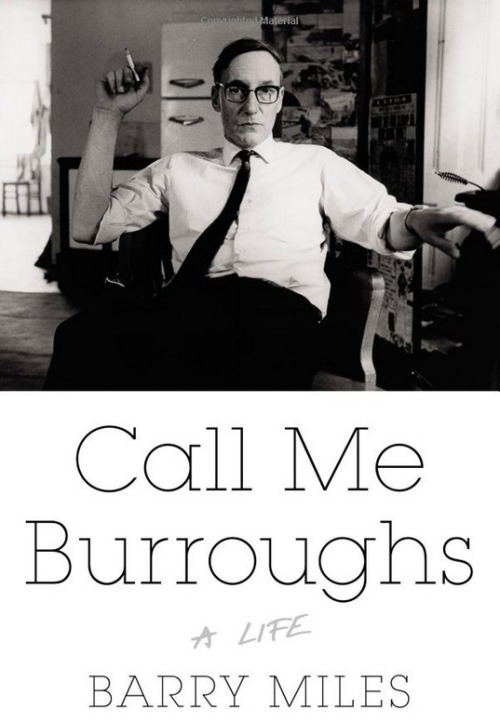
This Tuesday sees the publication of British writer Barry Miles biography of William Burroughs, “Call Me Burroughs.”
Reviewing the book in Bookforum,Jeremy Lybarger writes:
William S. Burroughs lived the kind of life few contemporary American novelists seek to emulate. A roll call of his sins: He was a queer and a junkie before being either was hip; he was a deadbeat father and an absent son; he was a misogynist, a gun lover, and a drunk; he was a guru of junk science and crank religion; he haunted the most sinister dregs of Mexico City, Tangier, Paris, London, and New York; he was an avant-garde writer with little affection for plot and none at all for epiphany; he wore his Americanness like a colostomy bag, shameful but essential. When he died at age 83 in 1997, his last words were: “Be back in no time.” At least he wasn’t a liar.
This year is the centenary of Burroughs’s birth and the occasion for Barry Miles’s new biography, Call Me Burroughs: A Life. Miles specializes in Beat literature and is arguably the definitive biographer of Ginsberg and Kerouac, as well as a devout Burroughsian whose 1993 book, William Burroughs: El Hombre Invisible, remains a mainstay of academic bibliographies. Call Me Burroughs eclipses everything else he’s done in terms of breadth, erudition, and sheer narrative combustion. If you’re one for literary gamesmanship, note that it also trumps Ted Morgan’s Literary Outlaw (1998) as the authoritative record of Burroughs’s life.
Let me suggest that a fair barometer of biographical writing is how well it resists hyperbole. Miles is successful in this regard, which is impressive given that Burroughs’s life yields so much that is extreme. There’s the foggy childhood incident in which his beloved nurse either aborted her baby in front of him or forced him to suck her boyfriend’s penis (years of psychoanalysis never fully recovered the details). Or there’s the murder of Burroughs’s friend David Kammerer, about which Burroughs “showed no emotion.” Or there’s the afternoon that Burroughs, desperately in love with a teenage hustler but also desperately possessive, sawed off his own finger joint with poultry shears in an act of lurid chivalry. Or there’s his smorgasbord of addictions—to heroin, alcohol, marijuana, Eukodol, morphine. Above all, there’s the horrific event he spent endless doped years and infinite harrowing pages trying to exorcize: the shooting incident in which he killed his common-law wife, Joan Vollmer, in Mexico City, 1951.
Joan Vollmer is something like the Tokyo Rose of Beat literature; her presence is subliminal but toxic…
For more, head to Bookforum.
Burroughs on using heroin:
Burroughs reads his novel, “Junky”:
-– A Days of the Crazy-Wild blog post: sounds, visuals and/or news –-